„War is a wound in every heart”
Author: Sakinakhanim Mammadova
The Nagorno-Karabakh conflict between Armenia and Azerbaijan became more acute following the collapse of the Soviet empire in 1991. The first war over Karabakh resulted in more than 2
million refugees and internally displaced people (IDP) around the Caucasus region.
During the 2020 Karabakh War, Azerbaijan reported that an estimated 40,000 Azerbaijani residents were temporarily displaced by the fighting. The Armenian Foreign Ministry has stated that
approximately 90,000 ethnic Armenians from Nagorno-Karabakh fled the hostilities and took shelter in Armenia.
Both sides suffered heavy losses during the conflict. We decided to interview people from both countries who are pro-peace to learn how the wars affected their lives.
Ethnic Azerbaijani Kifayat Hasanova, 64, was born in 1958 in the Armenian city of Kafan. She spent her childhood living and playing with Armenians.
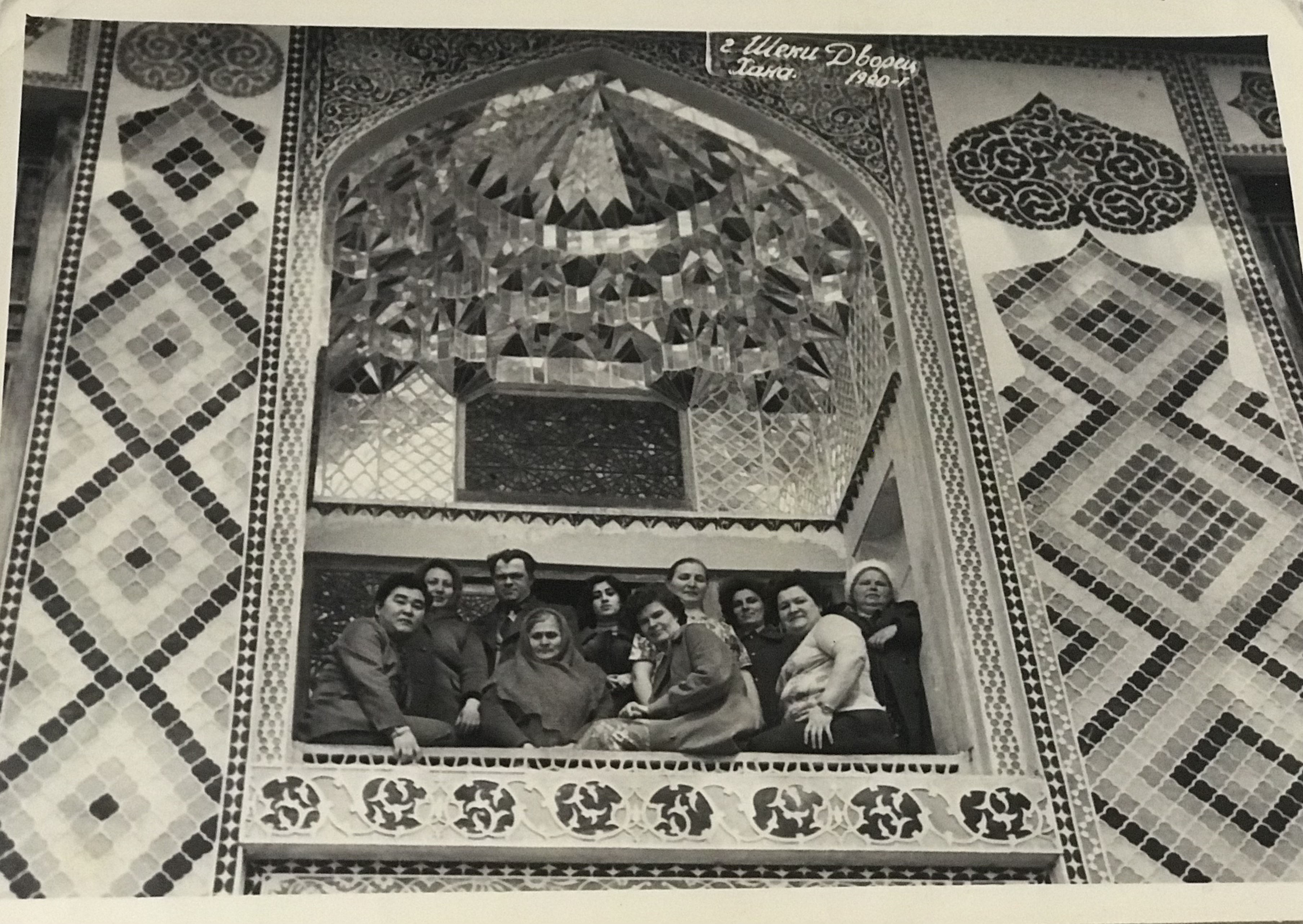
“As children, we had many Armenian neighbors and lived with them. Sometimes we were very kind when we played games, and sometimes we argued. When I worked at the Radio Factory in Baku, I had
Armenian colleagues, and we understood each other very well, we were together on holidays and good deeds. We supported each other during the bad times. I remember, when I was young, I took
my mother to Naftalan, a city in Azerbaijan where most Azerbaijanis go for medical treatment. There we met an old Armenian woman named Urum, and when I went for a walk to the Sheki Khan
Palace, my mother allowed me to go with her. We still have a photo we took with that woman.”
Kifayat’s husband, Asif, was killed in the conflict in the direction of Fuzuli on January 13, 1993. Kifayat remembers the day she learned that her husband had been killed.
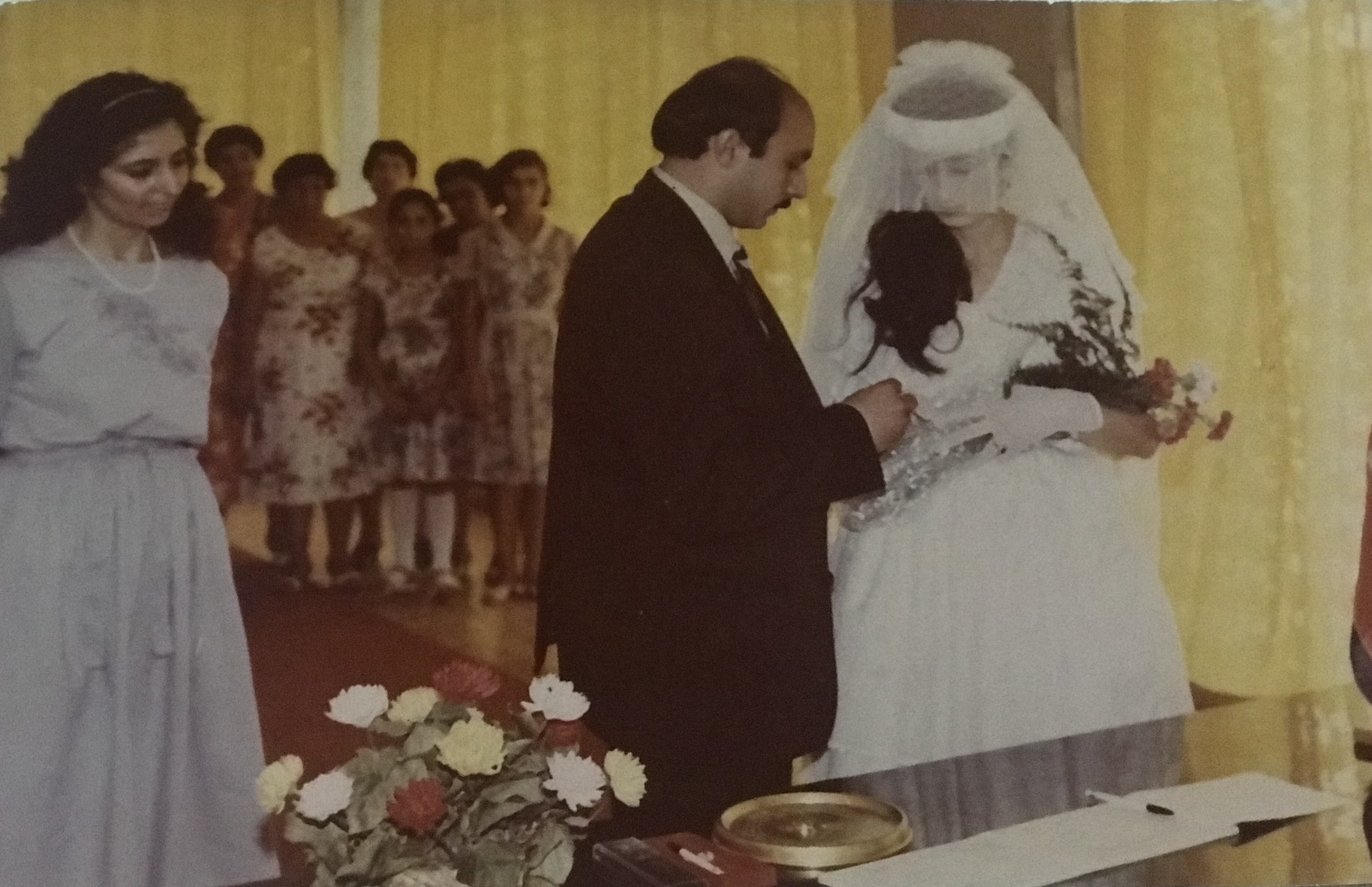
“I was at work on the morning of January 14. I worked in a leather factory. Suddenly the telephone rang from the office, the girls ran and picked up the phone. I also saw my coworker looking at me and crying. She came to me, hugged me and told me that it was nothing, he [Asif] was just injured. I fainted and when I woke up, my boss was splashing water on my face. What impressed me the most was that my children came from kindergarten and stood in the corner of the house and looked at their father's lifeless body and my face. My daughter was five and my son was three. My daughter has never forgotten this incident. This is a family tragedy.”
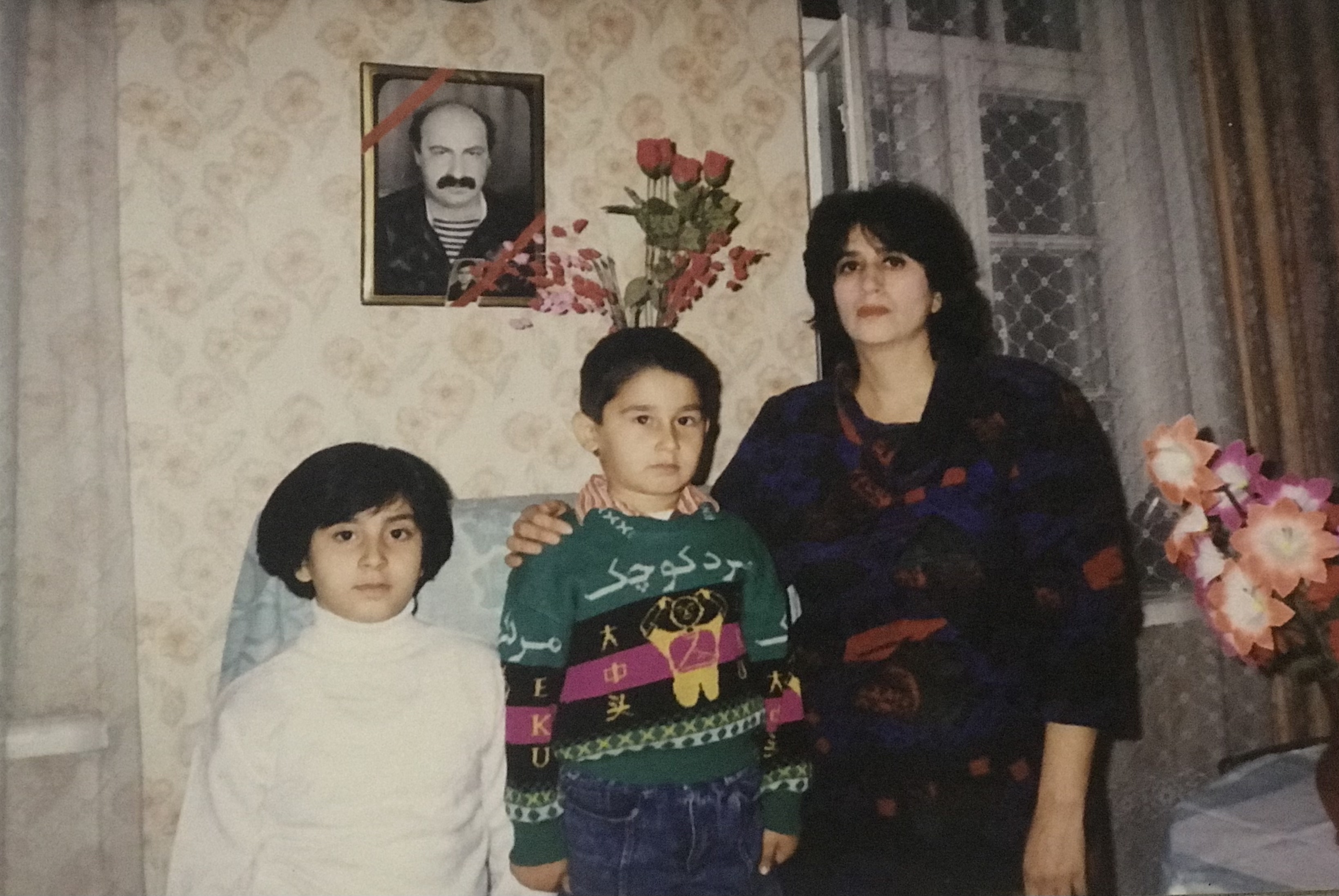
Kifayat described the Nagorno-Karabakh war as a heavy loss and said that she now supports peace.
“War is a horror to every mother, father, parent and humanity in general. It's simply hard to live through that horror. The war between these two states brought tears, pain, sorrow and grief
to both sides. We have lived with Armenians in the past and … we can do it [again] because the hearts of our people are very big. I am for peace and I do not want our children or their
children to die. War is a tragedy for families, a lost half-life and a life that will not last. How many of our young people died in the last war, each of them had his own family, and now
the warmth has been extinguished in many families’ homes.
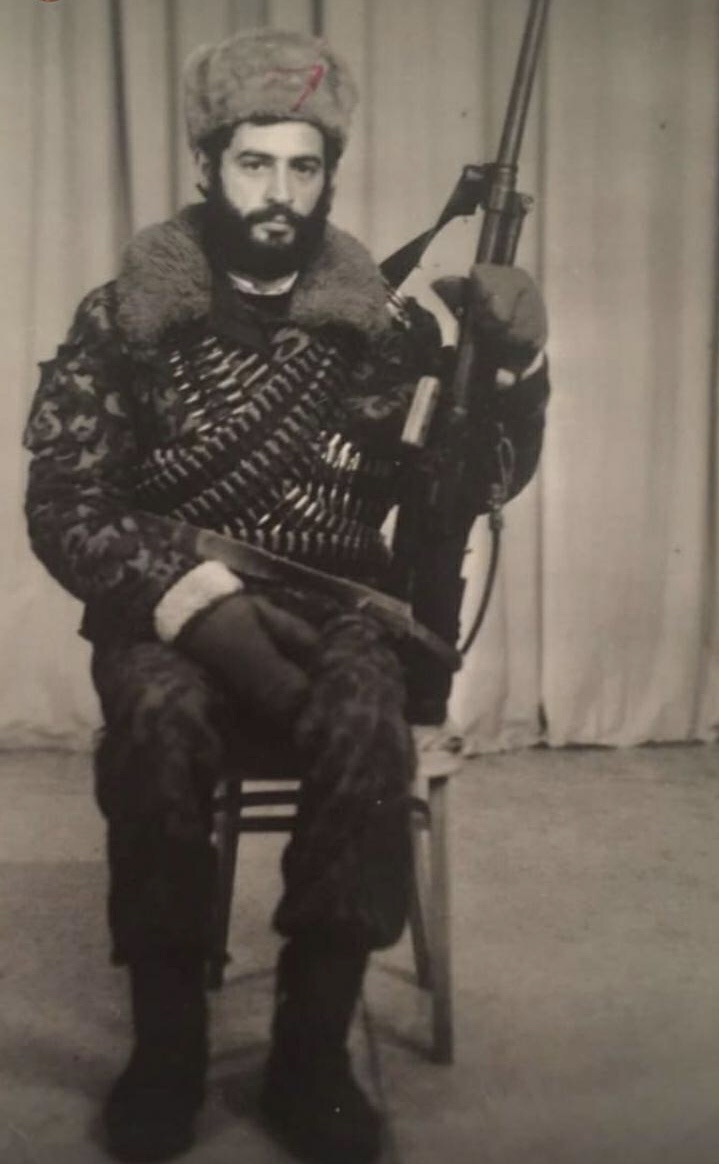
Ethnic Azerbaijani Bahruz Jamalov, 60, fought in the First Karabakh War. Born in the village of Seyidli in the Aghdam region, Bahruz Jamalov volunteered for the First Karabakh War in 1992.
“At that time everything was difficult, there was very little ammunition. Imagine that there were only 100 weapons for 400-500 people. I voluntarily joined the war, paying for everything
from my uniform to bullets. … The war was the scourge of our youth.”
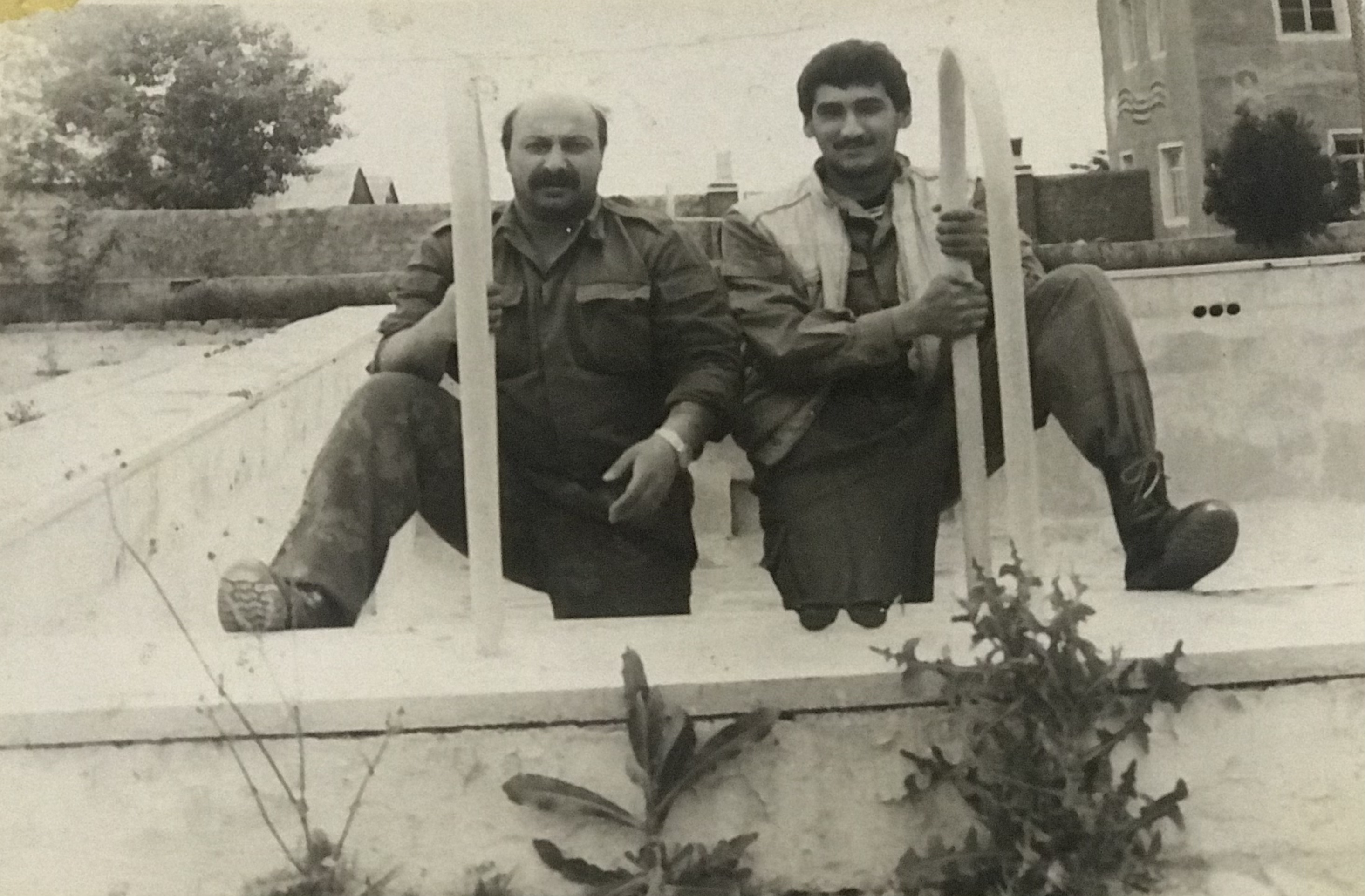
Bahruz lost both his legs during the first war, and lost several close relatives in the 2020 Karabakh War: his younger brother Rovshan Jamalov; cousins Vagif Nagiyev and Fuad Nagiyev; and
his first cousin once removed, Agil Guliyev. Another cousin, Natig Jamalov, has been missing in action since the first war.
“The war didn't do us any good. We have suffered. The war took 30 years of my youth and gave me two prosthetic legs in return. War has brought us nothing but malice and anger. I did not see
any good coming from the war. We lived together and in the past, we did not chase or beat up our neighbors just because they were Armenians. We were friends once.”
Bahruz suffered psychological trauma as well.
“I was always jealous of those who had one leg, and I wanted to have at least one leg. After I tried the prosthesis for a year and a half, I stopped because I couldn't stand them and thought
I would manage them. During that time, my whole mental state was upside down, and I didn't even allow anyone to dust off the prosthesis.”
Bahruz also wants peace, but he thinks it is too early to live with Armenians. “I believe in, and I support, peace, but it is too early to live together. And I don't think I'll live to see
the day when we live together again. Peace between these two countries is inevitable, and I do not support war because I do not want future generations to sacrifice their lives for this
war.”
Ethnic Armenian Arthur Vartanian is a photographer known in Armenia as Arthur Paparazzi. He moved to Armenia from the UK in 2018. Arthur said he lost many friends in the 2020 war, including
Armenian dancer and pantomime actor Hovhannes Hajinyan. Hovhannes, who volunteered to fight in the war, was killed on October 20 at the age of 39.
He says Hovhannes’ death is a serious loss for Armenian culture.
Arthur thinks that the 21st century should be a war-free and painless era of communication, and is worried about the resurgence of tensions between the two countries after the last war.
“Hearts are broken. Mothers are missing their only son, or innocent 18 or 20-year-old young boys who could not start a family or a career… You can rebuild a home, but you cannot bring a dead
person back to life. War is a wound in every heart.”
Arthur believes in and supports lasting peace between Armenia and Azerbaijan.
“I believe in peace between Armenia and Azerbaijan… We can have good relationships. We are not enemies anymore. What happened in the past stays in the past. No more war and no more blood
from our young generation. Before the 1990s we were like a big family, so what happened to that??? I don’t want to fear Azeri people or hate them.”
